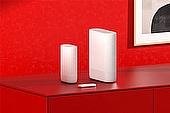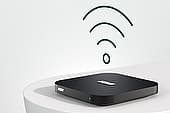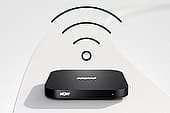Home > Broadband > News > Broadband must be sold as 'full-fibre' or 'part-fibre'
Broadband must be sold as 'full-fibre' or 'part-fibre'
Ofcom has announced new rules that broadband infrastructure must be made clearer and less ambiguous.
Ofcom has issued new guidance to broadband providers to ensure customers are given clearer information when signing up to a broadband deal.
The broadband infrastructure used to deliver an Internet connection must be labelled as 'full-fibre', 'part-fibre', 'copper' or 'cable', with the term 'fibre' no longer allowed to be used on its own.
Ofcom found a quarter of broadband customers were unsure what certain terms meant, and half reported being on 'full-fibre' in areas that it wasn't actually available.

Consumer confusion
Ofcom consulted on proposals to make broadband terms clearer between March and May 2023, after concern was raised that the term 'fibre' was being used inconsistently between new and older networks.
'Fibre' has, up till now, been used to describe connections that provide fibre optic cable to the cabinet (part-fibre), as well as full fibre to the home (full-fibre), however the differences in capabilities between these two infrastructure types is quite vast.
As a result, Ofcom said, this could lead to consumers being confused about the services they were purchasing and prevent them from making informed decisions about their broadband service.
For example, their researched showed as many as 25% of broadband customers weren't confident understanding the terminology used by providers, and as many as 46% of customers believed they had a 'full fibre' connection when they actually lived in areas where full fibre was not yet available.
New guidelines
Back in March 2023, when this issue was first raised, Ofcom suggested that the term 'fibre' should be limited to connections offering full fibre to the home, however, they've concluded the use of 'part-fibre' is permitted, which does indeed seem more reasonable.
The new guidelines set out the following terms for broadband providers when communicating the services they offer to customers:
- Providers should use one or two terms that are clear and unambiguous to describe the broadband technology, such as 'cable', 'full-fibre', 'copper' or 'part-fibre'. These terms should be included at the point of sale on the website and in the contract.
- The use of the word 'fibre' on its own is too ambiguous and should not be used to describe the broadband technology.
- Providers should give a more detailed explanation of how the broadband technology works, including through a link to more information, in a way that is accessible and easy to understand.
Broadband providers have been given nine months, until 16th September 2024, to implement these changes and bring their information up to date with the new guidelines. Ofcom are expecting changes are made to websites, contracts, and customer journeys whether they be online, face to face or over the phone.
Fibre definitions
This change in terminology from Ofcom comes at a time when multiple providers are rolling out independent networks across the UK for the first time.
Up until the last few years, most customers have either had access to part-fibre or copper connections through their home phone lines with Openreach, or some have also had access to cable broadband from Virgin Media.
Now however, full fibre networks are being installed across the country with Ofcom having previously ruled Openreach must share its network of ducts and poles.
These networks still differ however, with variations in the technology used ranging from 1Gb per second top speeds, to up to 10Gb per second with the latest XGS-PON equipment, and even differences in whether a connection is truly gigabit-capable.
So, while Ofcom may have removed some consumer confusion between part and full-fibre connections, it's likely issues around terminology and definitions will continue until the full fibre roll-out matures and equipment and speed upgrades settle.

We are independent of all of the products and services we compare.

We order our comparison tables by price or feature and never by referral revenue.

We donate at least 5% of our profits to charity, and we have a climate positive workforce.
Get insider tips and the latest offers in our newsletter
Latest News

25 June 2025
Government launch IT Reuse for Good charter
20 May 2025
Vodafone launch Pro 3 broadband with WiFi 7
15 May 2025
NOW Broadband to increase prices by £3 per month
Comments